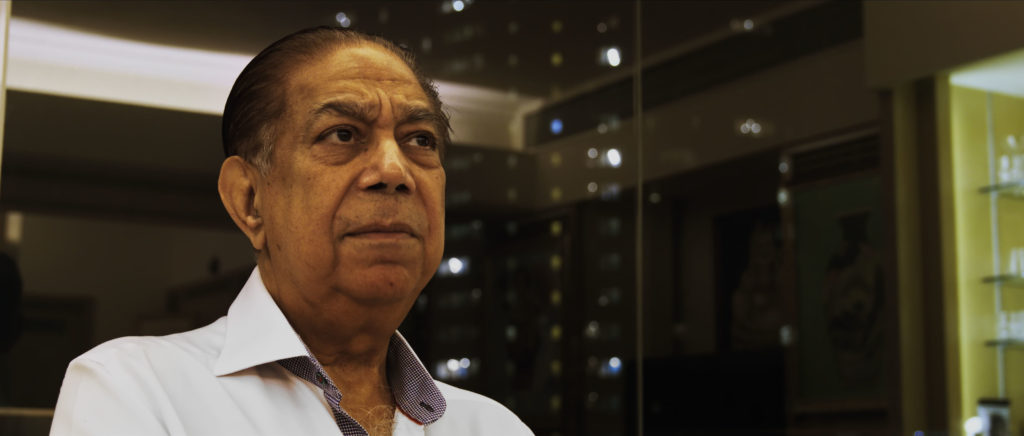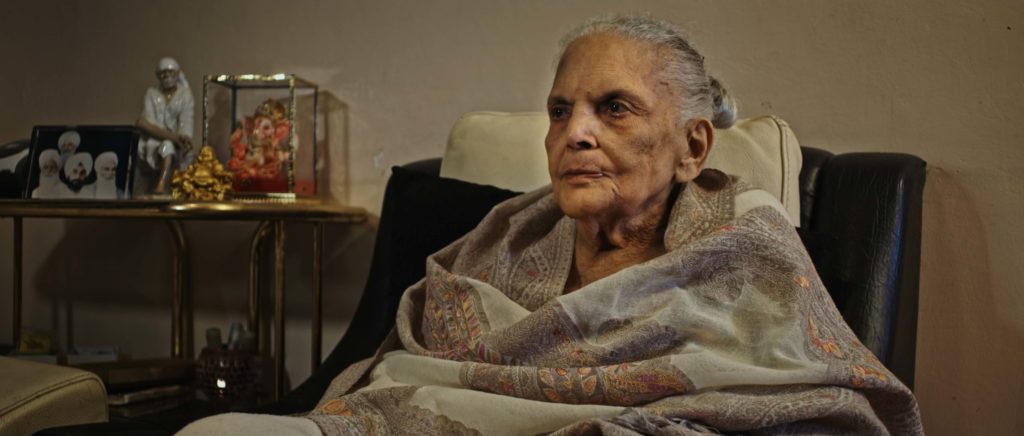Characters

Suhaee Abro
Suhaee Abro is a Sindhi Muslim dancer, actress and performance artist from Karachi, Sindh.
Daughter of Khuda Bux Abro – visual artist, columnist and activist – and Attiya Dawood – writer, poetess and activist, she travels across rural Sindh to reconnect with her roots and question herself about what it means to be a Sindhi and what Sindh is going through today.
During her journey, Suhaee reflect on the role of Sindh and Sindhi culture in the modern world to later deliver a message of change through her art.

Jagdeesh Ahuja
Jagdeesh Ahuja is a Sindhi Hindu politician and activist who has campaigned his whole life for a united and an independent Sindh, promoting Sindhi culture and a message of unity.
For his beliefs and actions, Jagdeesh has been incarcerated and tortured during General Muhammad Zia ul-Haq’s regime, an event that didn’t stop him from writing and being actively involved in politics.
Today Jagdeesh is involved in giving access to a fair, progressive and open education, and in providing healthcare and other essential services in rural Sindh through his organisation Sindhu Vaas.

Lal Chellaram
Lal Chellaram is a Sindhi Hindu and business magnate born in Hyderabad Sindh who fled from the newly formed Pakistan towards India during the 1947 Partition.
The story of Lal’s family can well represent one of the best example of the success of Sindhiworkis: Sindhis businessmen who during the British Era managed to expand their business network, reaching a global scope. After Partition, like many others the Chellarams found themselves as refugees among approx another million of Sindhi Hindu who chose to leave Sindh. They succeeded in maintaining and even expanding their network. Becoming perhaps one of the most prominent and respected Sindhi’s Families worldwide.
For the past 40 years, Mr Chellaram dedicated his life to the Chellaram Group and his passion for philanthropy, setting up the Chellaram Foundation in 2000. Now he is based between Hong Kong, Spain, India and the UK, heading the Group’s and Foundation’s success.

Ghulam Nabi Aghani
Ghulam Nabi Aghani is a Sindhi Muslim man who has worked his whole life at a rice mill in rural Sindh.
Ghulam, like many people in Sindh, is a devotee of the Sufi Saint Lal Shahbaz Qalandar, whose shrine is located in Sehwan. In 2017, a terrorist attack happened in the fully packed Shrine, leaving at least 90 people dead and 300 injured. Ghulam lost his hearing and witnessed the death of friends.
Today Ghulam is still a devotee of Lal Shahbaz Qalandar, and continues travelling to the shrine to pay his respect to the Saint in the shrine, which buzzes with devotees as always.

Thakuri Kishinchand Rajwani
Thakuri Kishinchand Rajwani, Sindhi Hindu, was 86 years old when we met her to listen to her story.
Thakuri was just a teenager when the Partition of 1947 happened.
For days, her father kept her and the women of the family in the house because afraid for something to happen to them. When he came to know that a neighbour of his was going to flee to India, he entrusted her to him. After a long three day train journey disguised in a burka, Thakuri arrived safely in India, meeting her sister.
Later, she got married and moved to Hong Kong, Taiwan and the Canary Islands, where she passed away in 2019.

Dirven Hazari
Dirven Hazari is a Sindhi Hindu Youtuber born and raised in Ulhasnagar (Mumbai), India.
Dirven has never travelled to Sindh and hopes that, one day, he will be able to touch the soil of his motherland and connect to his culture, like many other Sindhis born abroad. To feel close to his roots, in 2016 he founded Sindhionism, a Youtube channel in Sindhi which aims to promote the language and the culture, keeping them alive.
As of today, his videos have been watched by millions of Sindhis from more than 180 countries.

The Kolhi family
The Kolhi family is a Sindhi low caste Hindu family living in Tangrri, a Muslim majority village in rural Sindh.
Chandri, their 12 year old daughter, was abducted, converted to Islam and forced into marriage with a young Muslim boy despite her young age. Chandri’s parents are not allowed to see their daughter. Her parents were unable to afford a lawyer and make a case in a court to obtain justice.
The number of cases of boys and girls being abducted and forcefully converted to Islam is on the rise in rural Sindh.